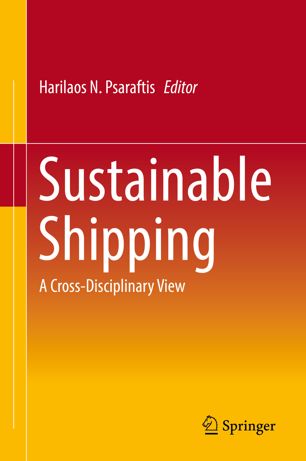

Most ebook files are in PDF format, so you can easily read them using various software such as Foxit Reader or directly on the Google Chrome browser.
Some ebook files are released by publishers in other formats such as .awz, .mobi, .epub, .fb2, etc. You may need to install specific software to read these formats on mobile/PC, such as Calibre.
Please read the tutorial at this link: https://ebookbell.com/faq
We offer FREE conversion to the popular formats you request; however, this may take some time. Therefore, right after payment, please email us, and we will try to provide the service as quickly as possible.
For some exceptional file formats or broken links (if any), please refrain from opening any disputes. Instead, email us first, and we will try to assist within a maximum of 6 hours.
EbookBell Team

4.3
48 reviewsInternational shipping is currently at a crossroads. The decision of the International Maritime Organization (IMO) in April 2018 to adopt an Initial Strategy so as to achieve by 2050 a reduction of at least 50% in maritime greenhouse gas (GHG) emissions vis-à-vis 2008 levels epitomizes the last among a series of recent developments as regards sustainable shipping. It also sets the scene on what may happen in the future. Even though many experts and industry circles believe that the IMO decision is in line with the COP21 climate change agreement in Paris in 2015, others disagree, either on the ground that the target is not ambitious enough, or on the ground that no clear pathway to reach the target is currently visible. This book takes a cross-disciplinary view of the various dimensions of the maritime transportation sustainability problem. “Cross-disciplinary” means that a variety of angles are used to examine the book topics, and these mainly include the technological angle, the economics angle, the logistics angle, and the environmental angle. The book reviews models that can be used to evaluate decisions, policy alternatives and trade-offs. For sustainable shipping, a spectrum of technical, logistics-based and market based measures are being contemplated. All may have important side-effects as regards the economics and logistics of the maritime supply chain, including ports and hinterland connections. The objective to attain an acceptable environmental performance, while at the same time respecting traditional economic performance criteria so that shipping remains viable, is and is likely to be a central goal for both industry and policy-makers in the years ahead. At the same time, policy fragmentation is likely to create distortions of competition and sub-optimal solutions. This book attempts to address these issues and identify better solutions. Sustainable Shipping: A Cross-Disciplinary View includes chapters that cover many relevant topics. These include a general view of maritime transport sustainability, green ship technologies, information and communication technologies (ICTs) for sustainable shipping, green tramp ship routing and scheduling, green liner network design and speed optimization. Market based measures, oil pollution, ship recycling, sulphur emissions, ballast water management, alternative fuels and green ports are also covered. The book concludes by discussing prospects for the future, with a focus on the IMO Initial Strategy